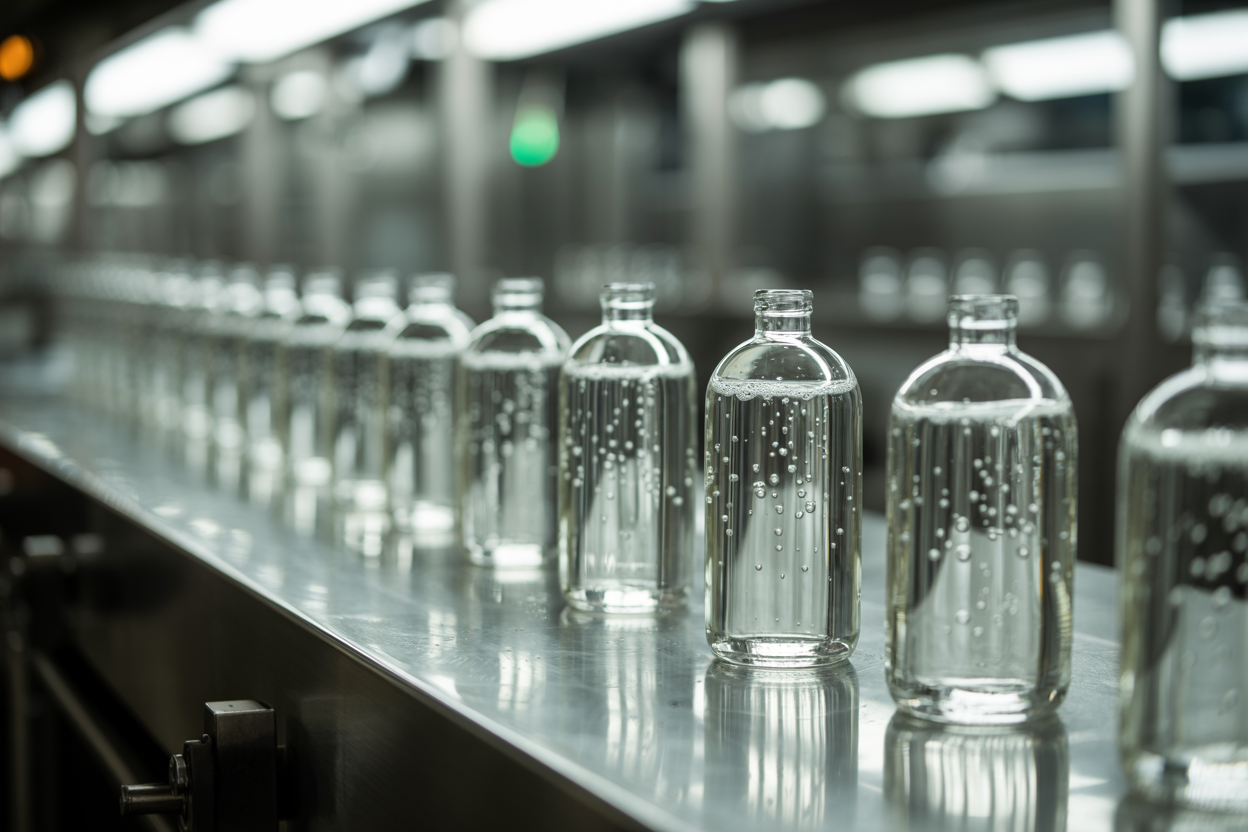Fast-Track Your Next Kombucha: Develop, Test and Scale Without the Guesswork
Ask anyone who's taken a kombucha from concept to shelf the traditional way. It's slow. It's unpredictable. And it's full of surprises you didn't budget for.
Odd flavour notes. Drifting acid profiles. That sudden alcohol spike just when you thought you were ready to bottle.
Meanwhile, the kombucha category keeps moving fast. It's projected to grow from $4.28 billion in 2024 to over $15 billion by 2034. That's serious momentum.
What holds brands back isn't a lack of ideas. It's the grind of moving from lab pilot to reliable commercial launch while giving both technical and commercial teams real confidence in what hits the line. The teams winning right now aren't necessarily bigger or better-funded. They're just building smarter processes that cut variability at the root.
Where Traditional Development Trips Teams Up
Those of you who have worked on kombucha or functional product development likely know the below pain points too well.
Long, unpredictable timelines. Primary fermentation alone takes 4–6 weeks, followed by rounds of testing and reworking to align your acid and sensory profile. In practice, that often means 6–12 months before a formula is scalable.
Gathering compliance data. Producing documentation and chasing alcohol data just as retailers start asking questions is no one's idea of good timing.
Inconsistent inputs. Changes in temperature, substrate or culture can and will derail even the most careful planning.
Meanwhile, buyers are expecting sign-off-ready SKUs quickly. Interestingly, that means the teams that shave just two weeks off their development cycle often catch fast-moving retail windows and outperform slower competitors by up to 30% in first-year sales. We explored what the inconsistency gap really costs in our article on the hidden costs of unstable kombucha production.
Ingredient-Led Development: How the Smart Teams Work
Forward-thinking brands are cutting through the guesswork by pivoting to ingredient-led development like those we provide. Instead of building each product from scratch, they're working with consistent, ready-to-blend kombucha bases that bring all the benefits of fermentation without all of the unpredictability.
These bases are pre-fermented over six months, alcohol-free, high-strength and shelf-stable. That six-week fermentation window? Gone. You start with a backbone that's scientifically balanced, batch-tested and ready for flavour development on day one. Scale-up becomes about finessing dilution and taste instead of the firefighting.
Every base delivers the same microbiological profile and pH, batch after batch. That means what your R&D team tests is what your production team bottles. You can explore the technical details and application possibilities in our insights into kombucha product development.
Taking the Risk Out of Compliance and Scale-Up
Pilot trials become more meaningful when your starting point is fixed. The same ingredient moves seamlessly from lab to bottling line, which means you get predictable performance and a clean compliance record, every time.
Because these bases are already alcohol-free and certified to leading standards (including Organic, Kosher, Halal and SQF/GFSI), your QA and procurement teams can focus on market delivery, not rulebook juggling. For deeper reading, our guide on navigating regulatory hurdles shows exactly how operators are staying below that crucial 0.5% mark with less stress and more consistency.
What Happens When R&D Finally Flows
Once technical teams get a taste of ingredient-led development, your rhythm can change immediately. Project backlogs shrink. Flavour exploration speeds up. Trials happen in parallel instead of one by one.
Teams that were spending their hours managing fermentation can now invest them in true innovation. New functional blends. Clean-label formats. Products that move beyond kombucha into new segments, like low and no-alcohol drinks.
The stakes are high. Products that meet their time-to-market goals are 1.5 times more profitable than those that don't, according to the Product Development and Management Association. And companies that consistently hit their launch targets? They enjoy profit margins 40% higher on average than slower competitors.
Lessons from Teams Moving Fast (and Staying in Control)
Start with ready-to-use bases. Using high-strength bases (up to 40x) cuts labour, simplifies production and avoids unnecessary capex as throughput grows.
Optimise, don't rebuild. Move away from "start again" and towards "refine and scale." Formulas transfer directly between R&D and production.
Keep documentation in hand. Batch data, shelf-life and compliance packs are ready from the outset. No more retrofitting under pressure.
Many teams use our product development and technical resources to map this workflow into their own operations, eliminating bottlenecks one step at a time.
From Reactive to Repeatable
The future belongs to producers who treat kombucha development as an engineered process. Something repeatable, reliable and scalable. The aim isn't just speed. It's confidence. Knowing every batch will hit spec, every flavour will hold true and every launch will feel predictable rather than pressured.
Once you've felt that shift from reactive firefighting to proactive control, there's no going back.
If you're facing similar bottlenecks or want to see what a more predictable R&D timeline could look like, our team can walk you through exactly how this works in practice. Sometimes a single process tweak or supply change is the difference between waiting and winning in this market.
Get in touch with our team to start the conversation.



